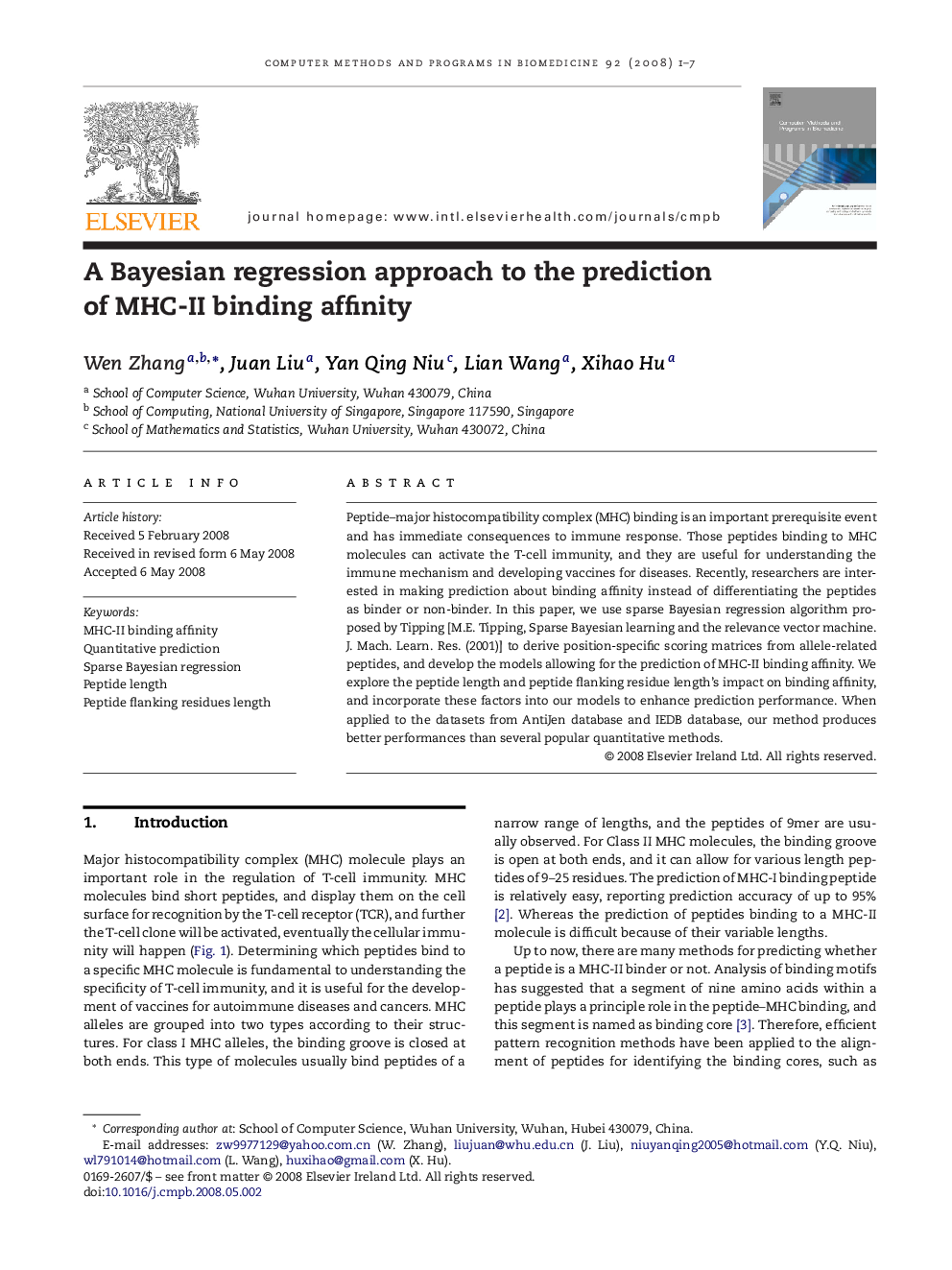| کد مقاله | کد نشریه | سال انتشار | مقاله انگلیسی | نسخه تمام متن |
|---|---|---|---|---|
| 468148 | 698189 | 2008 | 7 صفحه PDF | دانلود رایگان |

Peptide–major histocompatibility complex (MHC) binding is an important prerequisite event and has immediate consequences to immune response. Those peptides binding to MHC molecules can activate the T-cell immunity, and they are useful for understanding the immune mechanism and developing vaccines for diseases. Recently, researchers are interested in making prediction about binding affinity instead of differentiating the peptides as binder or non-binder. In this paper, we use sparse Bayesian regression algorithm proposed by Tipping [M.E. Tipping, Sparse Bayesian learning and the relevance vector machine. J. Mach. Learn. Res. (2001)] to derive position-specific scoring matrices from allele-related peptides, and develop the models allowing for the prediction of MHC-II binding affinity. We explore the peptide length and peptide flanking residue length's impact on binding affinity, and incorporate these factors into our models to enhance prediction performance. When applied to the datasets from AntiJen database and IEDB database, our method produces better performances than several popular quantitative methods.
Journal: Computer Methods and Programs in Biomedicine - Volume 92, Issue 1, October 2008, Pages 1–7